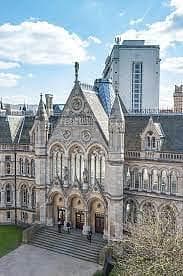BSc Hons Environmental Science at Nottingham Trent University
Nottingham, United Kingdom
- Tuition Fee £ 17,500
- Country Rank-
- Duration36 Months
- Score IELTS: 6 TOEFL: 74
Program Overview
This multidisciplinary course includes the scientific study of the physical, chemical and biological processes operating on and within the Earth. It is fully accredited by the Institution of Environmental Sciences. You will explore environmental issues including natural resources, waste management, conservation and sustainability. Other areas of focus include climate change, renewable energies, environmental hazard management, and law and policy.
Cost Of Studying At Nottingham Trent University
Interest rates as low as 8.9% *
250K+
Students Assisted
800Cr+
Loan Amount Disbursed
5000+
Loans Sanctioned
Check Loan Eligibility
Powered by
